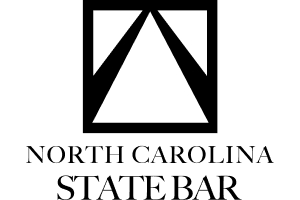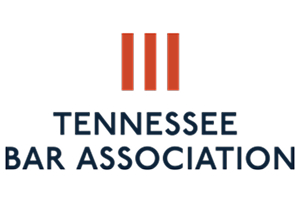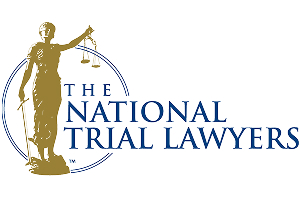Church and Clergy Sexual Assaults
Compassionate Attorney Serving Victims of Clergy Abuse in Tennessee and North Carolina
Abuse within a religious institution strikes at a deep level. If a clergy member used their position in Charlotte to commit sexual assault, the trauma often extends beyond physical harm. Survivors may wrestle with guilt, spiritual distress, or fear of speaking out. That silence protects the abuser, not you. Our firm believes no title or role should shield someone from accountability.
The damage mirrors the emotional toll seen in child sexual abuse cases, where trusted adults cause lasting harm. Mary Frances Parker, a Charlotte attorney, handles these cases with care and determination. Call (615) 485-1584 to begin your case review.
Institutions Can Be Held Liable for Clergy Sexual Abuse
Clergy sexual abuse cases often involve more than personal misconduct. When a religious institution ignores warnings, silences survivors, or reassigns known offenders, that organization may be liable. Civil claims provide a way to pursue justice for both the individual harm and the systemic failure that allowed it to happen.
These cases are rarely isolated. The U.S. Conference of Catholic Bishops reported in 2020 that nearly 4,000 survivors came forward with over 4,200 allegations involving minors during a single one-year period. These reports were collected through internal audits, not law enforcement, underscoring how many religious organizations continue to manage abuse claims behind closed doors.
Many survivors do not disclose the harm until years later, often after realizing the church protected the offender or ignored earlier complaints. A Charlotte clergy sexual abuse lawyer can help you identify all responsible parties and determine how the institution may have contributed to the abuse.
Types of Abuse That May Lead to Civil Claims
Survivors often describe a pattern of manipulation, secrecy, and abuse of power. These are some of the most common scenarios in clergy sexual abuse cases.
Abuse During Religious Counseling or Spiritual Guidance
Many survivors were targeted while seeking support through confession, premarital counseling, or prayer sessions. In these moments, clergy often hold significant emotional and spiritual authority. When that trust is violated, the impact can last for years. Institutions may be liable if they failed to monitor private meetings or dismissed early concerns raised by congregants.
Abuse Within Youth Programs or Religious Education
Minors are frequently abused in settings such as Sunday school, youth retreats, choir trips, or mission work. According to the U.S. Conference of Catholic Bishops, over 4,200 allegations of sexual abuse involving minors were reported in the one-year period ending June 2020. Nearly 4,000 survivors came forward during that same timeframe. These figures came from diocesan and eparchial audits, not police investigations, highlighting how churches often manage abuse allegations internally.
These patterns mirror those seen in child sexual abuse claims, where the abuse takes place under the guise of mentorship or instruction. A civil case may examine whether the church failed to conduct background checks, ignored complaints, or placed known abusers in roles of authority.
Abuse by Clergy with a Documented History
In many cases, church leaders quietly reassigned clergy after misconduct allegations, giving them access to new communities without informing the congregation. This institutional pattern of concealment increases liability. A thorough investigation can reveal how long church leaders knew of the risk and what steps, if any, they took to intervene.
Other Faith Communities May Share Similar Failures
While much of the data involves the Catholic Church, abuse has also been reported across Protestant denominations, independent ministries, and smaller religious sects. Survivors in these communities often face the same obstacles: pressure to remain silent, lack of reporting systems, and leaders who protect the institution instead of the victim.
In some ways, these cases resemble home healthcare sexual assault claims, where trusted individuals are given access to vulnerable people without sufficient oversight. The legal structure supporting these cases is similar and focuses on what the organization failed to do.
Speak With a Charlotte Clergy Sexual Assault Attorney Today
Sexual abuse by a clergy member is one of the deepest violations a person can experience. It often leaves lasting wounds, not only physically or emotionally, but spiritually. Religious institutions have a long history of concealing misconduct, particularly when it involves individuals in positions of authority. Survivors are frequently silenced or disbelieved, while leadership works to shield the institution from scrutiny.
Pursuing a civil claim in these cases is not just about seeking compensation. It can be a path to uncover the truth and force long-overdue transparency. We work to obtain internal reports, investigate prior complaints, and expose the decisions that allowed the abuse to continue. For many survivors, accountability starts with someone finally asking the right questions and refusing to accept easy answers. Call (615) 485-1584 to schedule a confidential consultation with an attorney who will listen and respond. We proudly represent clients throughout North Carolina and Tennessee, including in Wilmington, Fayetteville, Charlotte, Raleigh, Asheville Memphis, Nashville, Chattanooga, Knoxville, Johnson City.




